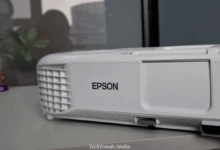Epson outlines technology solutions to support growth in Kenya

Epson has today outlined its commitment to the Kenyan market and its growth strategy for FY17. Based on a commitment to inkjet technology, Epson will seek to increase market share, championing the switch from laser to inkjet technology and as part of this, reducing print costs for its customers.
Since establishing its East African operations in 2011, Epson has seen a number of product successes, most notably with its Ink Tank System (ITS) printer range – a series of inkjet printers that eliminate the need for cartridges and reduce printing costs by up to 90%.
“Kenyan consumers have proven to be very savvy and ready to try solutions that help put money back in their pockets, and this has played a huge role in the success of our ITS range,” says Mukesh Bector, regional sales manager, Epson East Africa.
In East Africa, Epson ITS sales increased in the first quarter of 2016 by more than eight times the number in the first quarter of 2014, and in the same two-year period, sales of the ITS in Kenya increased by an outstanding 268%. Epson’s ITS printers achieved cumulative global sales last year of 15 million units since launching.
As the global market leader in projection, Epson has also seen success in Kenya with its range of visual imaging products. All Epson projectors – whether for large scale installation, education, business or for use at home – deliver images up to three times brighter than competitor 1-chip DLP projectors, thanks to high colour light output (CLO), making them suitable for use in daylight. And with collaborative and interactive features, and screen sizes of up to 300 inches – a much more cost-effective solution than flat-panel displays – as well as easy set-up and low-cost consumables, Epson is actively helping SMEs remain competitive.
These are important factors given that the Deloitte Kenya Economic Outlook 2016 report suggests that Kenyan SMEs face a number of challenges including insufficient capital, limited market access, poor infrastructure, inadequate knowledge and skills, and rapid changes in technology. Due to its commitment to innovation, and approximate $1.3 million daily spend on R&D, Epson has been able to respond to these market conditions and developed solutions that ideally suit the business needs of the East Africa region.
With a strong ambition for growth, Epson has established a good knowledge and understanding of the Kenyan market as well as a strong partner and distribution network. Further growth will see Epson expand its channel relationships in order to better support its end customers.
“Epson continually seeks to contribute to a sustainable society by reducing the environmental impact of its products and services,” says Bector. “As part of its drive for sustainability, Epson has outlined its Environmental Vision 2050, targeting a 90% reduction in CO2 emissions across the life cycle of all its products and services by 2050. Epson has already taken big strides towards reducing environmental impact across its products and manufacturing processes.”




